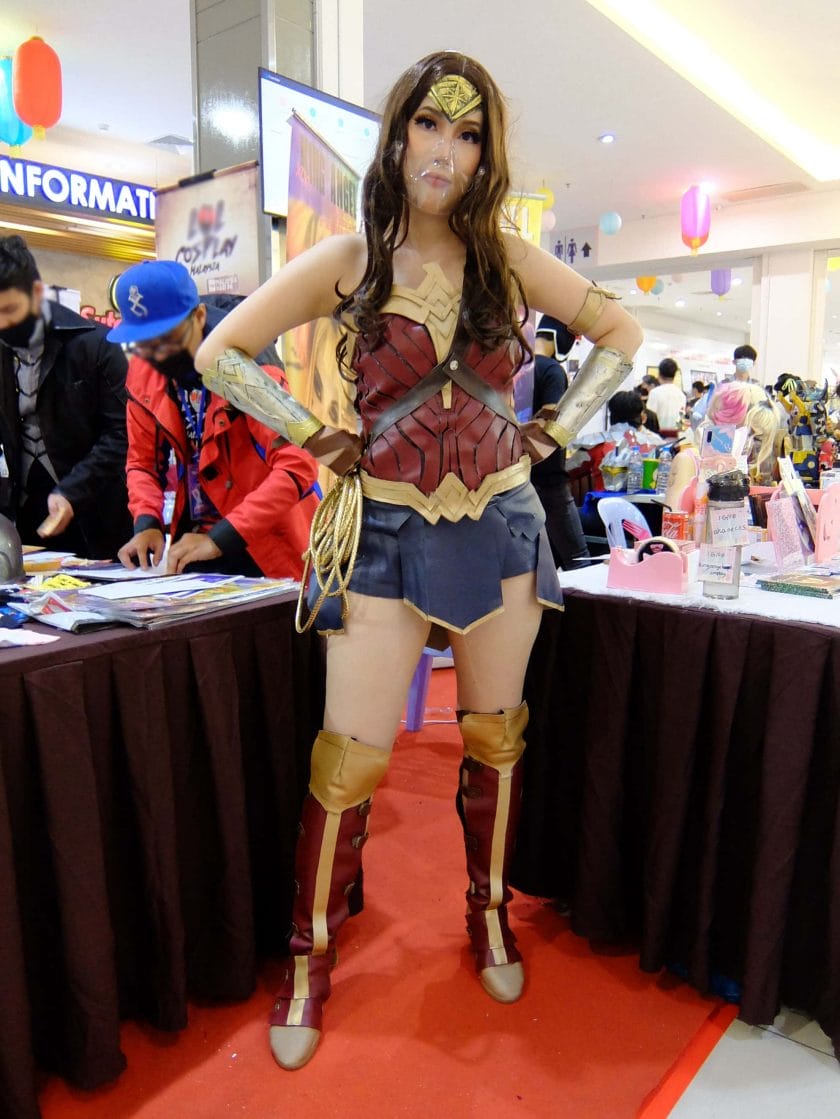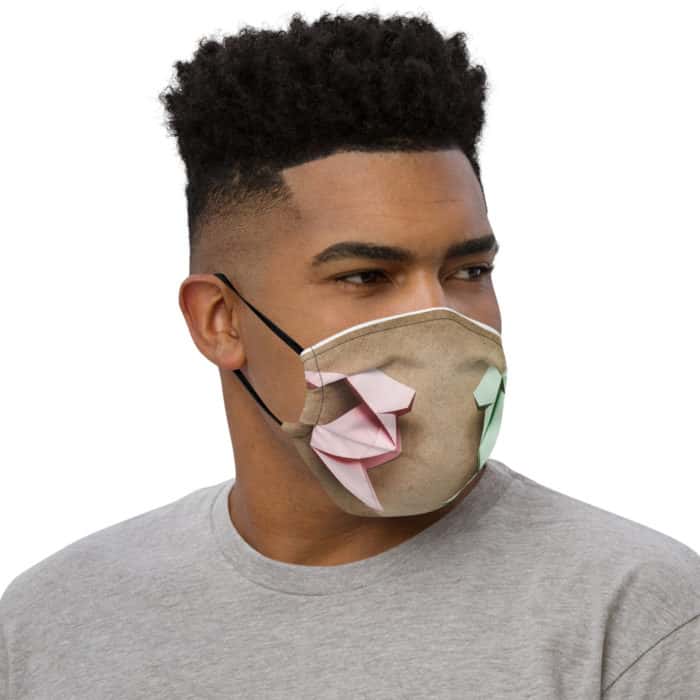Cosplay, the popular art of dressing up as fictional characters, has captivated enthusiasts worldwide. However, a heated debate surrounds the question: Does cosplay have to be accurate? This intriguing query delves into the essence of this creative hobby, exploring whether strict accuracy is essential or if there is room for personal interpretation and creativity. Let’s delve deeper into this captivating discussion and uncover the various perspectives within the vibrant world of cosplay.
What is cosplay and how would you define it?
Cosplay, short for “costume play,” is a popular hobby in which individuals dress up as characters from various forms of media, such as anime, manga, video games, movies, and TV shows. It’s like Halloween on steroids! Cosplayers meticulously recreate the costumes and accessories of their chosen characters and often embody their mannerisms and personalities as well. It’s a way for fans to express their love for a particular character or fandom and to showcase their creativity and craftsmanship.
Cosplay has evolved into a vibrant subculture with its own conventions, competitions, and online communities. It’s not just about dressing up; it’s about immersing oneself in the world of the character and connecting with fellow fans who share the same passion. Cosplay allows people to step into someone else’s shoes (or armor) for a day and experience the thrill of being a hero or villain.
When did the concept of accuracy become important in cosplay?
The concept of accuracy in cosplay has always been present to some extent, but it gained more prominence with the rise of social media platforms like Instagram and YouTube. In the early days of cosplay, enthusiasts focused more on creating costumes that were recognizable rather than obsessing over every minute detail. However, as cosplayers started sharing their creations online, they began receiving feedback from fellow fans who appreciated accuracy.
With the advent of photo-sharing platforms, cosplayers realized that capturing the essence of a character through accurate costume reproduction could garner more attention and admiration. The desire to stand out among thousands of other cosplayers pushed individuals to strive for greater accuracy in their costumes. This led to an increased emphasis on researching source materials, studying intricate designs, sourcing high-quality materials, and honing crafting skills.
Why do some cosplayers strive for accuracy in their costumes?
1. Pride in craftsmanship: Many cosplayers view accuracy as a challenge and take pride in their ability to recreate complex costumes with attention to detail. It’s a way for them to showcase their skills and craftsmanship, demonstrating their dedication and talent.
2. Immersion in the character: By striving for accuracy, cosplayers aim to fully embody the character they are portraying. Accurate costumes allow them to feel more connected to the source material and enhance their overall cosplay experience. It’s like stepping into the shoes of their favorite character and bringing them to life.
3. Recognition from fellow fans: Cosplay conventions and online communities provide opportunities for cosplayers to showcase their work and receive recognition from fellow fans. Accuracy often garners more attention, praise, and respect from both peers and admirers, leading some cosplayers to prioritize accuracy as a means of gaining validation within the community.
4. Personal satisfaction: For many cosplayers, achieving accuracy is a personal goal that brings them a sense of accomplishment and satisfaction. The process of researching, designing, and crafting an accurate costume can be challenging but immensely rewarding when they see the final result.
Are there any benefits to accurate cosplay? If so, what are they?
Accurate cosplay offers several benefits for both the cosplayer and the audience:
1. Enhanced immersion: When a cosplayer accurately recreates a character’s costume, it helps create a more immersive experience for themselves and those around them. The attention to detail allows others to easily recognize the character being portrayed, which adds to the overall enjoyment of events or conventions.
2. Appreciation of craftsmanship: Accurate cosplay showcases the skill and dedication of the cosplayer in recreating intricate designs with precision. It allows others to appreciate the craftsmanship involved in bringing fictional characters into reality.
3. Respect from fellow fans: In fandom communities, accurate cosplay is often highly regarded as a sign of dedication and passion for a particular character or franchise. Fellow fans are more likely to engage and connect with cosplayers who have put in the effort to achieve accuracy.
4. Opportunities for collaboration: Accurate cosplay can open doors for collaborations with photographers, fellow cosplayers, and even official events or companies. When a cosplayer’s work is recognized for its accuracy, it increases the chances of being approached for photoshoots, partnerships, or even professional opportunities within the industry.
5. Personal growth and skill development: Striving for accuracy pushes cosplayers to continually improve their skills in various areas such as sewing, prop-making, wig styling, and makeup application. The pursuit of accuracy allows them to expand their knowledge and expertise while honing their artistic abilities.
Overall, accurate cosplay not only benefits the individual cosplayer but also contributes to the overall quality and enjoyment of the cosplay community as a whole.
How does accuracy contribute to the overall experience of a cosplayer and their audience?
1. Recognition and appreciation: Accuracy helps both the cosplayer and the audience easily identify which character is being portrayed. This recognition enhances the sense of connection between fans and allows for greater appreciation of the effort put into creating an accurate costume.
2. Immersion in fandom: Accurate cosplay creates a more immersive experience for both the cosplayer and those around them. When a character is accurately represented through costume, props, makeup, and mannerisms, it brings that fictional world one step closer to reality. This immersion deepens the bond between fans by fostering shared experiences and conversations about beloved characters or franchises.
3. Inspiration for others: Accurate cosplay serves as inspiration for aspiring cosplayers who may be starting out or looking to improve their own skills. Seeing well-executed costumes motivates others to push their own boundaries and strive for greater accuracy in their own creations.
4. Building community connections: Accuracy in cosplay often leads to connections within the cosplay community. Fellow fans and cosplayers who appreciate accuracy are more likely to engage in conversations, share tips and techniques, and form lasting friendships. Accuracy becomes a common ground for enthusiasts to bond over their shared love for a particular character or franchise.
5. Showcasing creativity and craftsmanship: Accuracy allows cosplayers to showcase their creativity and craftsmanship in recreating intricate designs. It demonstrates their ability to translate two-dimensional concepts into three-dimensional realities. This display of skill not only impresses the audience but also encourages others to admire and respect the artistry involved in accurate cosplay.
Overall, accuracy contributes to a more fulfilling experience for both the cosplayer and their audience by fostering recognition, immersion, inspiration, community connections, and appreciation for creativity and craftsmanship.
Can a cosplay still be considered successful even if it’s not entirely accurate?
Yes, a cosplay can still be considered successful even if it’s not entirely accurate. While accuracy is often valued within the cosplay community, there are other factors that contribute to the success of a cosplay:
1. Creativity: Cosplay is an art form that allows individuals to express their creativity through interpretation and personalization of characters. A creative twist on a costume design can make a cosplay stand out even if it deviates from strict accuracy.
2. Execution: A well-executed cosplay with attention to detail, regardless of complete accuracy, can still be highly impressive and successful in capturing the essence of the character being portrayed.
3. Confidence: The confidence with which a cosplayer embodies the character can greatly enhance the overall success of a cosplay. Even if minor inaccuracies exist in the costume itself, confidence can compensate by drawing attention away from those details.
4. Stage presence: Performance aspects such as stage presence, acting skills, or engaging interactions with other cosplayers or attendees can elevate a cosplay’s success beyond its level of accuracy alone.
5. Personal enjoyment: Ultimately, cosplaying is about having fun and expressing one’s passion for a character or fandom. If a cosplayer feels satisfied and enjoys the experience, regardless of complete accuracy, then the cosplay can be considered successful on a personal level.
While accuracy is often valued and admired within the cosplay community, it’s important to remember that success in cosplay can be measured by various factors, including creativity, execution, confidence, stage presence, and personal enjoyment.
Are there different standards of accuracy depending on the character being cosplayed?
Different Standards for Different Characters
When it comes to accuracy in cosplay, the standards can vary depending on the character being portrayed. Some characters have iconic and easily recognizable outfits that require a high level of precision to be considered accurate. For example, cosplaying as Superman would require attention to detail in replicating his iconic blue and red suit with the S symbol on the chest. On the other hand, there are characters whose costumes allow for more creative interpretation and personalization. These characters might have less rigid expectations for accuracy, giving cosplayers more flexibility to put their own spin on the design.
Accuracy vs Interpretation
Another factor that influences the standards of accuracy is whether cosplayers aim for a faithful reproduction or an interpretation of a character’s costume. Some cosplayers strive for absolute accuracy, meticulously recreating every aspect of a character’s outfit down to the smallest details. Others prioritize capturing the essence and overall look of the character while adding their own unique flair. This approach allows for more creativity and originality but may deviate from strict accuracy.
Factors Influencing Accuracy Standards
The standards of accuracy can also be influenced by factors such as the popularity and cultural significance of a character. Characters from well-known franchises with large fan bases often have higher expectations for accuracy due to their widespread recognition. In contrast, lesser-known or niche characters may have more lenient standards since their appearances are not as widely known or easily identifiable.
Overall, while there are general expectations for accuracy in cosplay, different characters and personal interpretations can lead to variations in these standards.
Sources:
– “Cosplay: The Art of Costume Play” by Lauren Orsini
– “The Cosplay Handbook” by Svetlana Quindt
What are some challenges that cosplayers face when trying to achieve accuracy in their costumes?
Cost
One of the main challenges that cosplayers face when trying to achieve accuracy in their costumes is the cost. Creating a highly accurate costume often requires purchasing high-quality materials and accessories, which can be quite expensive. Additionally, some characters have intricate designs or unique props that may be difficult to find or create without spending a significant amount of money.
Skill Level
Another challenge is the level of skill required to create an accurate costume. Cosplaying involves various crafting techniques such as sewing, prop-making, and makeup application. Achieving accuracy often requires advanced skills in these areas, which may take years of practice to develop. Beginners or cosplayers with limited experience may struggle to replicate every detail accurately.
Time Constraints
Time constraints can also pose a challenge for cosplayers aiming for accuracy. Creating a highly accurate costume can be a time-consuming process, especially if there are complex details or multiple components involved. Cosplayers may need to invest a significant amount of time researching references, sourcing materials, and executing the construction of their costumes. This can be particularly challenging for those who have other commitments such as work or school.
List of Challenges:
- Cost
- Skill Level
- Time Constraints
Overall, achieving accuracy in cosplay can be challenging due to the costs involved, the level of skill required, and the time constraints faced by cosplayers.
Is it possible for a cosplayer to prioritize creativity and originality over accuracy? Why or why not?
The importance of creativity in cosplay
Cosplay is a form of self-expression and art, allowing individuals to embody their favorite characters from various media. Creativity plays a crucial role in this hobby as it allows cosplayers to bring their own unique interpretation and personal touch to their costumes. By prioritizing creativity, cosplayers have the freedom to experiment with different materials, designs, and techniques, resulting in innovative and eye-catching costumes.
The balance between accuracy and originality
While accuracy is often valued in cosplay, it is indeed possible for a cosplayer to prioritize creativity and originality over strict accuracy. Cosplay should be seen as an opportunity for individuals to showcase their artistic abilities and imagination. By deviating from strict accuracy, cosplayers can create stunning reinterpretations or mash-ups of characters that challenge traditional interpretations. This allows for fresh perspectives on beloved characters while still paying homage to the source material.
Challenges faced by prioritizing creativity over accuracy
However, it’s important to acknowledge that prioritizing creativity over accuracy can present certain challenges. Some fans or judges at cosplay competitions may place more emphasis on accurate portrayals of characters rather than appreciating the artistic liberties taken by the cosplayer. This could result in lower scores or criticism from those who value accuracy above all else. Additionally, some cosplayers themselves may feel pressured to conform to societal expectations of accurate cosplay rather than exploring their own creative visions.
In conclusion, while accuracy is often seen as a fundamental aspect of cosplay, it is entirely possible for a cosplayer to prioritize creativity and originality over strict adherence to source material. By doing so, they can push the boundaries of what cosplay can be and create truly unique interpretations of beloved characters.
(Note: This paragraph can be further expanded with examples and personal experiences of cosplayers who have prioritized creativity over accuracy.)
How do judges at cosplay competitions evaluate the accuracy of a costume?
Judging Criteria
When evaluating the accuracy of a costume at cosplay competitions, judges typically consider several factors. Firstly, they assess the overall resemblance of the costume to its source material, such as a character from a video game or anime. This includes examining details like color scheme, fabric choice, and design elements. Judges also look for attention to small details, such as accessories or props that are integral to the character’s appearance. Additionally, craftsmanship plays a crucial role in evaluation, with judges scrutinizing the quality of sewing, construction techniques, and overall fit of the costume.
Scoring System
To ensure fairness and consistency in judging accuracy, many cosplay competitions employ a scoring system. This system often assigns points for different aspects of accuracy and craftsmanship. For example, judges may award points for accurately replicating specific elements of a character’s costume or rewarding exceptional attention to detail. The scores are then tallied up to determine winners in various categories.
Example:
- Resemblance to source material
- Attention to detail
- Craftsmanship
- Fabric choice
- Construction techniques
- Overall fit
Overall, judges at cosplay competitions use specific criteria and scoring systems to evaluate the accuracy of costumes objectively. By considering these factors and paying close attention to every detail, they can fairly assess the level of accuracy achieved by cosplayers.
Are there any negative aspects associated with focusing too much on accuracy in cosplay?
Focusing too much on accuracy in cosplay can have some negative aspects that should be considered. Firstly, it can lead to unnecessary pressure and stress on cosplayers. Striving for absolute perfection can create a highly competitive environment where cosplayers may feel overwhelmed and discouraged if they cannot meet impossibly high standards. This pressure can take away from the enjoyment and creativity that cosplay should bring.
Additionally, an excessive focus on accuracy can limit the artistic freedom of cosplayers. Cosplay is not only about replicating existing characters but also about adding personal touches and interpretations. By prioritizing accuracy above all else, there is less room for individual creativity and innovation in costume design.
Moreover, the cost associated with achieving high levels of accuracy can be a significant barrier for some cosplayers. Accurate costumes often require expensive materials, intricate props, and professional craftsmanship, which may not be feasible for everyone due to financial constraints or lack of access to resources.
Despite these potential negatives, accuracy remains an essential aspect of cosplay for many enthusiasts. It allows them to pay homage to their favorite characters and demonstrate their dedication to their craft. However, it is crucial to strike a balance between accuracy and personal expression in order to foster a positive and inclusive cosplay community.
Can inaccurate cosplay still be appreciated by fans and fellow cosplayers? Why or why not?
Inaccurate cosplay can still be appreciated by fans and fellow cosplayers for several reasons. Firstly, cosplay is ultimately about celebrating fandoms and expressing love for fictional characters. While accuracy adds an extra layer of admiration, it does not diminish the passion or effort put into a costume that deviates from strict replication.
Furthermore, inaccurate cosplay can showcase unique interpretations and creative twists on well-known characters. These variations often spark interesting discussions among fans and encourage others to think outside the box when designing their own costumes. Inaccuracy can also serve as a form of self-expression, allowing cosplayers to incorporate their own style or cultural influences into their portrayals.
Additionally, appreciating inaccurate cosplay promotes inclusivity within the community. Not everyone has the resources or skills to create perfectly accurate costumes, but that should not deter them from participating and enjoying cosplay. By embracing and celebrating diverse interpretations, fans and fellow cosplayers contribute to a more welcoming and supportive environment.
While accuracy is valued in cosplay, it is not the sole determinant of appreciation. The passion, creativity, and enthusiasm that cosplayers bring to their portrayals can shine through regardless of strict accuracy, making inaccurate cosplay just as worthy of admiration.
Do you think accurate cosplay is more prevalent now compared to earlier years? Why or why not?
Accurate cosplay has become increasingly prevalent over the years due to several factors. Firstly, the availability of resources and information has significantly improved with the rise of the internet. Cosplayers now have easy access to reference images, tutorials, and communities where they can seek advice on achieving accuracy. This accessibility has empowered cosplayers to strive for higher levels of accuracy in their costumes.
Moreover, advancements in technology have played a role in enhancing accuracy. Cosplayers now have access to better tools and materials that allow for more precise replication of intricate details. Techniques such as 3D printing and digital design have revolutionized prop-making, enabling cosplayers to create highly accurate accessories.
The growing popularity of cosplay competitions also contributes to the prevalence of accurate cosplay. With competitions providing platforms for recognition and prizes, cosplayers are motivated to invest time and effort into achieving greater accuracy in order to stand out among their peers.
However, it is important to note that accurate cosplay is not the only measure of success or enjoyment in the community. Many cosplayers still prioritize personal expression and creativity over strict accuracy, resulting in a diverse range of styles within the hobby.
Should beginners prioritize accuracy when starting out in cosplay, or is it more important to focus on having fun and learning skills first?
When starting out in cosplay, beginners should prioritize having fun and learning skills rather than obsessing over strict accuracy. Cosplay is an art form that allows individuals to express their creativity and passion for a particular fandom. Emphasizing enjoyment and skill development at the beginning stages helps foster a positive and supportive environment for beginners.
By focusing on having fun, beginners can explore different aspects of cosplay without feeling overwhelmed by the pressure to achieve accuracy. They can experiment with various techniques, materials, and styles to find what resonates with them personally. This freedom allows for greater self-expression and encourages beginners to develop their own unique approach to cosplay.
Learning skills is also crucial for growth in cosplay. By concentrating on improving craftsmanship, sewing abilities, prop-making techniques, and other relevant skills, beginners can gradually enhance the quality of their costumes over time. Prioritizing skill development provides a solid foundation for future endeavors in accurate cosplay if desired.
While accuracy is important in cosplay, it should not overshadow the joy and learning experiences that come with the hobby. Beginners should feel encouraged to explore their creativity, make mistakes, and embrace imperfections as part of their journey towards becoming skilled cosplayers.
In conclusion, the accuracy of cosplay is subjective and can vary depending on personal preferences. While some enthusiasts strive for authenticity, others prioritize creativity and interpretation. Ultimately, the most important aspect of cosplay is having fun and expressing your passion for a character or fandom. If you’re interested in exploring the world of cosplay, we invite you to check out our range of products and get in touch with us. We’d love to help you bring your favorite characters to life!

Does a cosplay have to be exact?
It’s crucial to remember that cosplay is inclusive and for everyone. The concept of “accuracy” only matters in cosplay competitions, and even then it refers to the quality of the costume rather than the physical appearance of the person wearing it. You have the freedom to cosplay any character you have a passion for!
Is it OK for a girl to cosplay as a boy?
Absolutely! It is acceptable to explore and experiment with gender, and for certain transgender individuals, Halloween provides a chance to express their gender identity or dress in a manner that aligns with their true selves, which may not be possible in other situations.

Can you cosplay a character you don’t look like?
No, it is not necessary at all. Cosplaying is comparable to Halloween, but without it actually being Halloween. The main purpose is to have fun, express your admiration for your favorite character, and appreciate and enjoy other people who are also cosplaying.
What is the downside of cosplay?
Expense: Cosplaying can be costly, particularly for top-notch costumes and props. Time dedication: Crafting a cosplay outfit can require a substantial amount of time and energy. Criticism: Not everyone will value the effort invested in a cosplay, and there may be individuals who provide unfavorable critique.
Can you dress up as anything for cosplay?
It is important to remember that cosplay is inclusive and open to everyone. The concept of ‘accuracy’ only applies to cosplay competitions, where the focus is on the quality of the costume rather than the physical appearance of the person wearing it. You have the freedom to cosplay as any character you admire or love!
Can you wear cosplay casually?
Dedicated fans demonstrate their passion by engaging in casual cosplay, which involves styling everyday clothes to resemble a specific character or capture the essence of a beloved franchise.












